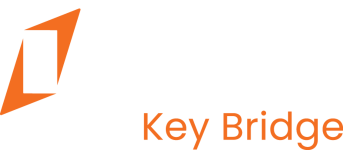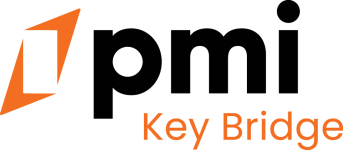Alexandria’s rental market is thriving, driven by its proximity to Washington, D.C., vibrant communities, and steady demand from professionals, families, and government workers. While this demand creates opportunity, it also underscores an important truth: even the strongest markets won’t guarantee profitability without careful financial planning. A single unexpected repair, extended vacancy, or tax increase can chip away at earnings if landlords aren’t prepared.
This is where budgeting becomes essential. A well-planned budget doesn’t just track expenses—it protects cash flow; cushions risk and paves the way for consistent long-term growth. At PMI Key Bridge, we work with local property owners to design smart financial strategies that keep investments strong. One of the most effective first steps is implementing smarter rent collection systems that help reduce late payments and keep income consistent.
Key Takeaways
- Conservative rent projections help landlords avoid overestimating cash flow.
- A reserve fund ensures that repairs don’t disrupt monthly income.
- Smart upgrades make rentals more competitive and reduce vacancies.
- Proactive tax planning maximizes deductions and lowers burdens.
- Professional management allows landlords to scale without stress.
Start With Realistic Income Projections
Many landlords assume monthly rent multiplied by 12 equals annual income. For example, if an Alexandria apartment rents for $2,400 per month, it appears to generate $28,800 yearly. But once a 5% vacancy allowance is applied, the figure drops closer to $27,360.
Even in Alexandria’s competitive market, tenant turnover, seasonal demand shifts, and lease transitions are inevitable. Conservative estimates help landlords maintain stability, cover expenses, and avoid unpleasant financial surprises.
Tips for accurate forecasting
- Always budget for at least 5% vacancy.
- Use neighborhood rental comps, not just citywide averages.
- Prioritize renewals to reduce vacancy periods.
Understand the Full Cost of Ownership
Income is only part of the equation. Landlords must budget for fixed and variable costs.
Fixed costs often include:
- Mortgage payments
- Property taxes
- Insurance premiums
Variable costs include:
- Routine repairs and maintenance
- Utilities (if landlord-paid)
- Landscaping, pest control, and seasonal upkeep
- Property management fees
Some landlords hesitate to budget for management services, but PMI Key Bridge clients often see higher overall profitability. Faster tenant placement, stronger screening, and fewer costly mistakes offset the fee.
Protect Your Cash Flow with a Reserve
Every rental property comes with risks. In Alexandria, that could mean HVAC repairs in mid-summer, storm damage in winter, or urgent plumbing issues.
By setting aside 5–10% of monthly rental income into a reserve fund, landlords build a cushion that keeps emergencies from becoming financial crises. This proactive step ensures expenses are covered without draining profits or delaying important repairs.
Invest in Upgrades That Deliver ROI
Not all expenses drain your budget. Strategic upgrades can increase property value, reduce vacancies, and attract higher-paying tenants.
Smart upgrades include:
- Energy-efficient appliances that reduce utility costs
- Fresh paint and durable flooring for updated interiors
- Smart locks and security features for tenant peace of mind
- Landscaping improvements to boost curb appeal
When paired with proactive strategies for handling tenant challenges, these improvements create stronger rental experiences that reduce disputes and keep tenants longer.
Use Tools That Simplify Financial Tracking
Budgets are only effective when backed by accurate data. Paper records and generic spreadsheets often result in errors and overlooked deductions.
PMI Key Bridge provides advanced financial reporting systems that include:
- Monthly income and expense statements
- Tax-ready documentation
- Real-time cash flow visibility
- Expense categorization for easier tracking
These insights allow landlords to identify trends, adjust strategies, and keep investments profitable.
Budget With Taxes in Mind
Taxes can be one of the largest expenses for landlords, but they also present opportunities for savings. Alexandria property owners should take advantage of deductions such as:
- Mortgage interest – usually the largest annual deduction.
- Management fees – deductible as business costs.
- Repairs – deductible in the year incurred.
- Travel expenses – mileage for inspections or contractor visits.
- Depreciation – spreads the cost of the property across its useful life.
By tracking these consistently, landlords simplify filing season and maximize profitability.
Scaling Without Losing Control
Managing one property may be straightforward, but handling several introduces complexity. More tenants mean more repairs, more bills, and more administrative tasks.
Creating per-property budgets makes it easier to see which units are most profitable. Bundling recurring services like landscaping or pest control across multiple rentals can reduce costs. With PMI Key Bridge managing operations, landlords can scale confidently without losing oversight.
Know When Self-Managing Becomes a Burden
Some landlords begin by managing their properties themselves, but as their portfolios grow, challenges multiply. Issues like rent collection, maintenance coordination, and compliance can quickly consume time and resources. Exploring the challenges of self-management helps owners recognize when professional support can boost profitability and peace of mind.
Budgeting as a Year-Round Strategy
A budget shouldn’t be reviewed once and forgotten. It should be an active, ongoing tool that evolves with your properties. By regularly updating income and expense reports, landlords stay ahead of issues and keep investments aligned with financial goals.
From Planning to Profit
Successful investments in Alexandria aren’t built on chance—they’re built on preparation. PMI Key Bridge partners with landlords to design budgets that protect cash flow, minimize risks, and foster long-term growth. Strengthen your portfolio today by connecting with us through our contact page and learn how our expertise can keep your rentals profitable year after year.
FAQs
How much do property management fees cost in Alexandria?
Most property managers in Alexandria charge 8–12% of monthly rent. While this may seem like an added cost, professional services like tenant placement, rent collection, and maintenance oversight often save money in the long run.
What are the property tax rates in Alexandria, VA?
Property taxes in Alexandria typically range around 1% of assessed value. For a $400,000 property, that equals about $4,000 annually. Budgeting for this prevents surprises and keeps landlords financially prepared.
How much should I save for maintenance each year?
Landlords should reserve about 1% of a property’s value annually for maintenance. For a $300,000 rental, that’s about $3,000 each year to cover both routine repairs and major replacements.
Do short-term rentals in Alexandria require different budgeting?
Yes. Short-term rentals often require higher budgets for cleaning, utilities, and furnishings. While they may generate more revenue, they also carry greater turnover costs.
What upgrades give the best return in Alexandria rentals?
The most profitable upgrades often include updated kitchens, modern flooring, smart locks, and energy-efficient appliances. These features increase appeal, justify higher rents, and reduce vacancy times.



